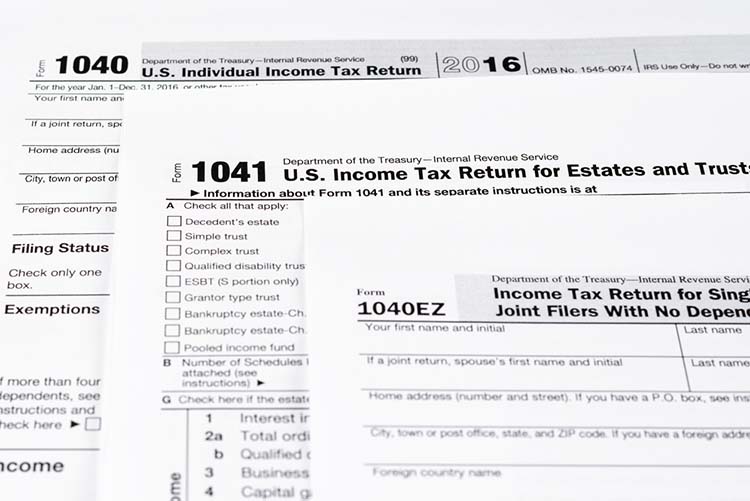Are Executor Fees Deductible on Form 1041?

A trust’s or estate’s executor might be a family member, who takes on pro bono management of income-producing assets following an individual’s death. They might take on this role out of love or affection for the decedent.
Is Rental Income Subject to Self-Employment Tax?

Even Albert Einstein struggled to understand income taxes, famously stating, “The hardest thing in the world to understand is the income tax.”
What Are the Benefits, Cons, and Limitations of Modern Portfolio Theory?

It’s been said before: There is no risk-free investment. But many investors want to limit investment risk, while hoping to generate a decent return. One attempt to balance investment risk and reward is Modern Portfolio Theory, or MPT. The idea behind MPT is that it is possible to provide investor-targeted returns, by accepting an optimal amount of risk.
How Do Companies Pay Capital Gains Taxes?

The Tax Cuts and Jobs Act (TCJA) of 2017 made some major changes to how corporations pay taxes.
Who is Exempt From Paying Capital Gains Tax?

Most real estate investors are quite familiar with capital gains taxes – but you may be able to exclude this tax when selling your primary residence.
When Do You Pay Capital Gains Tax?

Examining the question of when you pay capital gains tax has two components: first, what triggers the requirement to pay the tax, and second, what is the timing of the payment?
Retirement Portfolio Asset Allocation by Age: What You Need to Know

As investors approach retirement, their portfolio asset allocation changes. This change is due to a decrease in volatile assets. Older investors decrease portfolio volatility because they soon will start taking distributions. Taking distributions from a volatile portfolio can negatively impact investment principal and, thus, retirement income.
How to Know if You Qualify for a 1031 Exchange

So you’ve done your research and made your decision: you want to take advantage of a 1031 exchange to defer taxes related to your real estate investment. So how exactly do you qualify for this tax strategy?
The Top 10 Things You Should Know About 1031 Exchanges

Internal Revenue Code §1031 provides real-estate investors with a powerful tool known as a “1031 exchange.” What does it do exactly? It allows investors to hold on to gains they’ve made from their real-estate investments without having to pay taxes on the gains. That’s pretty sweet.



